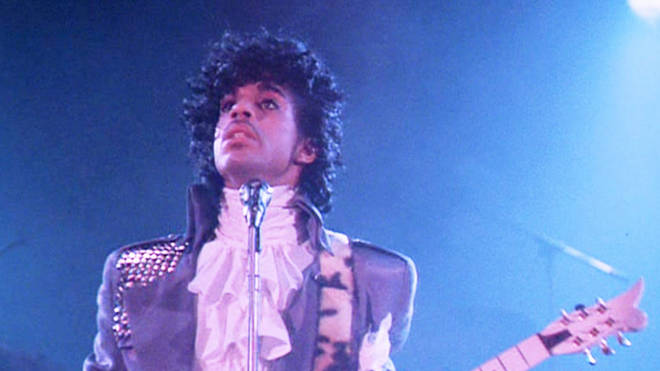 Chapter VII: Baby I’m a Star: This is What It Sounds Like
Chapter VII: Baby I’m a Star: This is What It Sounds Like
You can view it as supreme confidence, total arrogance or complete hubris, but Prince wanted a movie. He had made videos of course, but that was a far cry from making a feature film. His management team had no experience in movies, no contacts in the world of tinseltown. They knew music, not movies. He was however adamant: get him a movie deal or he would walk, and his contract was coming up for renewal just as his star really began to rise. This would be the very worst time to let him down, be fired by him, and sit on the sidelines watching his meteoric ascent into the pop - and perhaps movie - heavens.
It was not an easy sell. Music and movies do sometimes mix, but not that often, and the two worlds are usually quite separate, so no movie director or firm even knew at this point who Prince was. They weren’t about to offer him a movie deal. Who the hell was this upstart kid? Nobody in Hollywood knew him or could vouch for him, and to be completely fair, Prince had never acted - properly acted - in his life. His music, though gaining much traction among white audiences, was still mostly predominantly listened to by black fans, and though it has slowly and grudgingly changed over the last five years or so, Hollywood was never a bastion of black talent, so nobody cared about him. Movie studios want primarily to make money, and how were they going to do that with a (to them) unknown kid from - where did you say? Minne-fu
cking-apolis? What the hell ever came out of Minneapolis? Who even knew where that was? Sorry buddy, take it somewhere else, we’re not interested.
Meanwhile the single of “1999” was re-released to take advantage of the success of “Little Red Corvette”, and began to climb the charts. The album continued to sell, but no movie studio wanted to touch Prince, so in the end Bob Cavallo turned to his own label and asked Mo Ostin to bankroll the movie. Warner of course knew Prince’s potential, and agreed. He personally lent Cavallo the money; he didn’t even ask to see a script. He knew which way the wind was blowing, and he wanted to sail along with it, not watch it sail over the horizon under someone else’s flag. As the tour began to wind down, Prince and the band arrived in L.A. and Prince headed off to see Stevie Nicks, who had asked him if he could help her out on her current album, which he agreed to. He was only in the studio for a short time, tapped out an improvised melody, and was gone. The song ended up being “Stand Back”, a big hit for her on her second solo album
The Wild Heart, and you can hear Prince’s influence on it, although the record label decided to keep his name off the credits for fear of upsetting Warner.
As they took a break from recording, Prince began working on the third album for The Time. This was to be called
Ice Cream Castles but would proceed without Jimmy Jam and Terry Lewis. Still infuriated by their independence, and what he saw as both disobedience and disloyalty to him, he accused them of helping The Whispers to record “Keep On Loving Me”, which they didn’t deny, but didn’t admit to either. He fired the two of them, and that was that. When it came to man management, Prince could be and usually was ruthless, even cold. The fact that these two had come up riding on his coat-tails, in his mind, meant he could dump them whenever he liked, and find replacements easily. The boost The Time had given to his career, the support slots, the way they had looked upon him as a mentor, meant nothing once he had been defied. Cross him, it seemed, at your peril, and don’t think you’re his friend just because he helps you out. You’re nothing but a number, a worker in a factory, and as easily dispensed with.
Understandably, this did not go down well with the remaining members of The Time. They had all come up together, originally working the club circuit, and with one gone they all walked. But it was a sweet gig to leave behind on principles, and they had to eat, so some of them went back. Prince wanted Lewis back, but not Jam, but showing admirable loyalty to his bandmate, Terry told Prince they were a team and it was both or nothing. Prince chose nothing.

Putting all this to one side, he and Fargnoli met William Blinn, a TV producer who had worked on, among others,
Fame, and who they now approached with the idea of his writing Prince’s movie, which he agreed to do. He was to write the script and direct the movie, while Prince turned his attention to the next Vanity 6 album, which would never see the light of day. He met Dez Dickerson, aware the guy was uncomfortable with a lot of what he was playing, but nevertheless hit him with an ultimatum: commit to a three-year deal with the movie or jump now. If he wanted to do his own solo thing, Prince said, he understood and would help him. Dez thought about it, prayed for guidance, envisaged another three years with Prince and decided he’d had enough. For once, Prince parted company with an ex-employee on the best of terms.
Another man who had had enough was William Blinn. Not in any way familiar with the world of music, constantly stood up by Prince as he cancelled meeting after meeting to discuss the film, he finally gave up and left Minneapolis, telling them where they could stick their movie. Back to square one then. But Prince wasn’t prepared to leave it at that. Realising that for once he had pushed too hard and too far, and was dealing with someone who was not used to his ways, an outsider really, he actually approached Blinn and convinced him to come back, talking about his family life, letting Blinn in on the music he intended to have in the film, tentatively titled
Dreams and Blinn, seeing he was serious, decided to give it another shot.

All this time, Prince was competing against the other major black artist trying to cross over, the King of Pop himself. Michael Jackson’s
Thriller had come out at about the same time as
1999, but Jackson had a better pedigree than Prince, through his association with The Jackson 5 and having had a hit album already in
Off the Wall, and the services of production supremo Quincy Jones. It was looking like an uphill struggle for Prince, as
Thriller topped the chart, its title track and other singles ruling MTV (somewhat to their chagrin I imagine, considering how badly they had treated Jackson and other black acts) and everyone had the album in their collection.
1999 was selling really well, but Jackson’s album was still pissing all over it in terms of sales. In the end
Thriller would sell over 34 million units in the US alone, going thirty-four times platinum, more than twice the figure Prince could manage, and 70 million worldwide. It was at the top of the charts everywhere, from the US to Italy, Sweden to the UK. It seemed Prince was destined to lose to his major rival.
He must have been pretty pissed too that Jackson had patented a new dance, the Moonwalk, which outshone any moves Prince could make, and his appearance on - not to say complete takeover of - NBC’s TV special
Motown 25, celebrating, as you might expect, a quarter century of the music out of Detroit, watched by 45 million people, would not have helped. But Prince would have something Michael would not, if the stars aligned for him, and he worked hard on getting his film off the page and into production. Blinn had the script sketched out: Prince’s character would simply be known as “the Kid”, and the film would concentrate on his trying to get into the music scene after having witnessed his father shoot his mother. Vanity would be his love interest, and Blinn warned them that the movie was looking like it would get an R-rating, but they didn’t care. Since when had Prince shied from controversy? In fact, he thrived on it and in his music it was almost expected of him; his first movie should be no different.
Prince began having his new look created, centred, of course, around the colour purple, and hired a professional fashion designer to make him look his best. He also insisted the band - including those from The Time - take acting lessons, and learn how to dance properly, not just, as he called it “step along”. A huge warehouse on Highway 7 at St. Louis Park became their studio, and here Prince and the band created the music that was to accompany and drive the film, while Prince marshalled and drilled all three bands - The Time, Vanity 6 and The Revolution. It was, said Matt Fink, “like boot camp.” Prince never seemed to sleep, was a bundle of energy, dedicated to creating and realising his vision, and showing everyone - presumably including, most importantly, Michael Jackson - that he could do anything once he had decided to do it.
His new lover was Susannah Melvoin, Wendy’s sister, who came to visit and stole his heart. Even though she already had a boyfriend, that didn’t matter to Prince, who showered her with flowers sent to her home every day, which, it must be said, she did not return or berate him for. It would seem the other boyfriend’s days were numbered. Again, what Prince wanted, Prince got.
And now he wanted the word “purple” in the title of the movie. Blinn thought it was odd, but shrugged: it was the kid’s movie after all, who was he to argue? He settled on the title as
Purple Rain, but shortly afterwards Blinn deserted him, called back to TV land when NBC greenlit the hoped-for new season of
Fame, an event he had been waiting for. Seems pretty unprofessional to me, but I’m sure there was more to it. Nevertheless, Blinn was gone and Prince was left with nobody at the helm, so his managers began scouting for replacements. The script was mostly done, but they needed someone to polish and finish it off, and of course they needed a director. They settled on Albert Magnoli, whose student short film
Jazz, chronicling the lives of black musicians, impressed them. However things rarely run smoothly and Magnoli was called back to Paramount, but Cavallo made a last attempt to keep him. They had a meeting in which Magnoli outlined how he saw the script ending up. Prince was impressed with Magnoli. “I don’t get it. This is the first time I met you, but you’ve told me more about what I’ve experienced than anybody in my life,” he said and hired Magnoli there and then.
The main change Magnoli made to the script Blinn had begun was to dump the killing of the Kid’s parents, and instead include them in the storyline. I don’t know what they, or Prince, thought of Magnoli depicting his father as an abusive, gun-toting drunk, something that was as far removed from John Nelson’s character, as we have seen in the first chapter, as would be the case were Magnoli to have made him a white man instead of a black. It surely could not have gone down well with his parents, had they seen the film and recognised themselves in the characters, and you would imagine Prince would have been loath to denigrate them this way on the silver screen, but he doesn’t seem to have cared. After all, we’ve read about how he belittled his mother earlier; perhaps this was a Jim Morrison “mother I want to fu
ck you” state of mind, not saying Prince wanted to do that physically, but mentally, as in, f
uck his parents up. Or maybe he really was that cold and didn’t care as long as his movie got made. Either way, for me it shows the heart of selfishness that drove much of what Prince could be at times. Nobody and nothing got in his way, not even the truth.
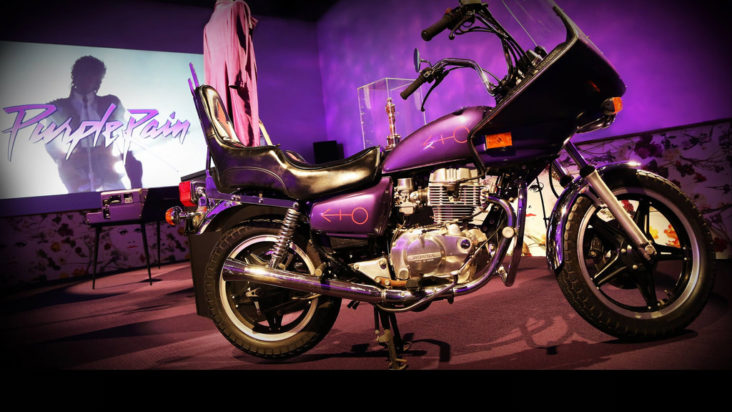
He now started to envision how he should travel in the movie, and decided on a motorbike. It would certainly draw rockers and bikers, was a symbol of strength, leadership and virility, and the motorbike, as we all know, had more or less taken the place of but fulfilled the same role that the knight’s steed had in the middle ages. He would be, in the parlance of the fifties and sixties, the leader of the pack. And now he began to actually delegate work, to apportion out sections of the songs he was writing, including the band not only on playing and recording but also composition. It was a new feeling for him, working with others instead of alone, and it brought a whole new dimension to the project.
A run-through of the songs they had recorded for the movie, given to a specially-invited audience of fans in First Avenue, a Minneapolis club that would appear in the movie, all proceeds going to the dance school that was teaching them their moves was a huge success, but disaster struck later. Vanity, unhappy about how she was being treated by Prince and, now that her star was on the rise and she was in demand, pushing for more money, left the project. Prince’s love interest, and that of “the Kid”, was gone, and would have to be replaced.
Despite his rivalry with Michael Jackson, it always seemed to Prince that the biggest recording star in history at the time was unaware of him, so it came as a hell of a surprise when, as Jackson was invited up onstage at a James Brown concert, he whispered to the soul legend and Brown shouted out for Prince, who was sitting at the back, watching the show. Somewhat uncomfortable at being singled out, Prince made a sort of fumbling attempt at a few riffs, made some gestures, then dived off the stage, in the process knocking over a fake lamppost, and legged it to his waiting limo outside.
Notwithstanding this highly public embarrassment though, Prince’s popularity continued to grow, and Scottish singer Sheena Easton asked if he would write a song for her, which he did, it becoming a big hit for her and changing her image in a way Nick Cave or Michael Hutchence did for Kylie Minogue. “Sugar Walls” was unlike anything the prim and proper Easton had ever attempted before, and just like that, she had become another creation of the music phenomenon that was Prince. His existing creations though, were less than happy. Morris Day was tired of being micromanaged and annoyed that he was not making as much money out of The Time as he believed he should be. Prince’s reaction was to double down, write and play every note of the new album and give Day guide vocals, but the singer had had enough and walked out.

Prince didn’t have time for this. He needed a replacement for another of his “pets” who had departed, and so a casting call began for the role of his love interest in the movie. Over 700 women auditioned, but the pornographic nature of much of the role was too much for many of them. Then came Patty Kotero, a small-time TV actress from West Hollywood with Mexican parents. After checking out her dancing and singing ability, Prince hired her as Vanity’s replacement. He renamed her Apollonia, told her and the remaining duo in Vanity 6 that they would now change their name to reflect hers, becoming Apollonia 6, and would perform in the film under that name. He engaged some break-dancers, the fad being relatively new and something he wanted to feature in the movie, and also hooked up with Dez Dickerson again.
Dickerson had a new band, the Modernites, who were, unsurprisingly, managed by Prince but for once not necessarily under his control, in other words they wrote their own songs and enjoyed autonomy from the Prince music machine. Dickerson’s band was to feature in the movie too. Production mostly wrapped by the end of December, but there was nobody to distribute the movie, so Cavallo persuaded Warner’s film arm, Warner Bros Pictures, to invest in the movie and distribute it in theatres. Aware that Prince had millions of fans by now, it wasn’t too hard a sell to the moguls, and so everything was ready.
Having more or less wrapped the movie, he turned to Apollonia 6’s first (Vanity 6’s projected second) album, and also worked with drummer Sheila Escoveto, who would become famous by dropping all but the first letter of her surname. He had met her backstage in 1979 and asked her how much she would charge to be his drummer, and she had named a figure which he had grinned and admitted sheepishly that was way out of his range. Only five years later though and he was more than ready to hire her, and so she began working for, and with, him, but not necessarily as a drummer. He wanted her to sing on a song called “Erotic City”, which she did, and then he began thinking that, as Apollonia was tiring of his demands, the songs he was writing for her album would perhaps better suit Sheila. He said to her, “You should do an album.”
Attending the 26th Grammy Awards ceremony, Prince again found himself second-best to the best, as Jackson scooped award after award for
Thriller, and took all the limelight, leaving Prince feeling out in the cold and decidedly second-rate. It seemed he would never be free of the shadow of the King of Pop, and would always be the Prince in Waiting to him. But let’s stop here for a moment to consider something.
Prince had been working on music for the movie, and later album
Purple Rain. He had written the third album for The Time, was working on Apollonia 6’s next record, writing music for Sheila E and encouraging her to make a solo album, and also - get this - writing music for his
next album! In the midst of all this he would write two number one songs, and future hits. To be fair, Jackson’s fame rested now entirely on seven hits from the nine-track
Thriller, and while that album has lasted in popularity right up to today, and is rightly cited as changing the world of pop music, let’s be blunt here: that’s all he did. He wrote - well, he wrote four songs, the others were written for him - but he worked on nine tracks, nine tracks that would make his fortune and place him at the very top of the pop music tree, and a multi-millionaire. But in terms of work output, Prince had him beaten hands down, up, and off. If Jackson could be called a hit machine, then Prince was a music machine, and he churned out more in a year than Jackson would almost in his entire career.
In fact, he was writing and producing so much music that he believed the time had come to create his own music label, which would be distributed, by an agreement therewith, by Warner. His home studio he had renamed Paisley Park, and so this also became the name of his new label. It was too late to sign Sheila E to the new label, but his bassist Mark Brown had been moonlighting with a band called Mazarati, and, though initially worried Prince would “find him out”, Brown was eventually convinced by the guitarist to make the first move and tell his boss about it. Instead of being angry, Prince went to some of their shows and then decided this was the first band he wanted to sign.








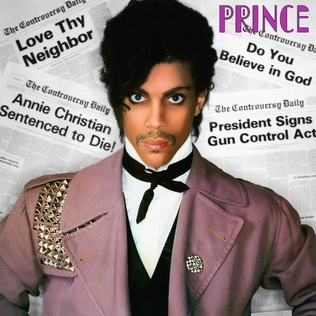

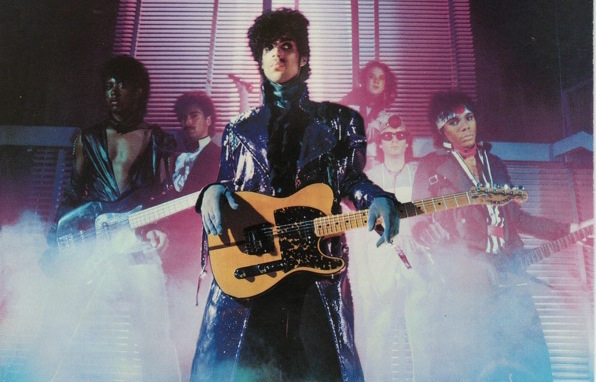














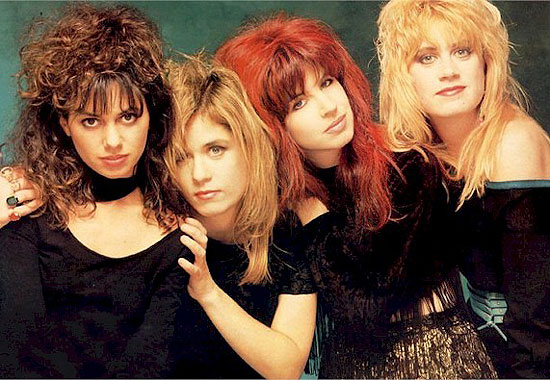
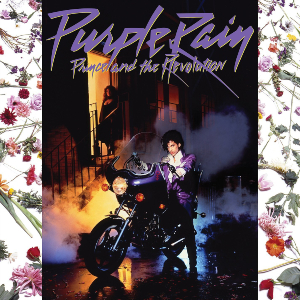
 has not heard it. So…
has not heard it. So…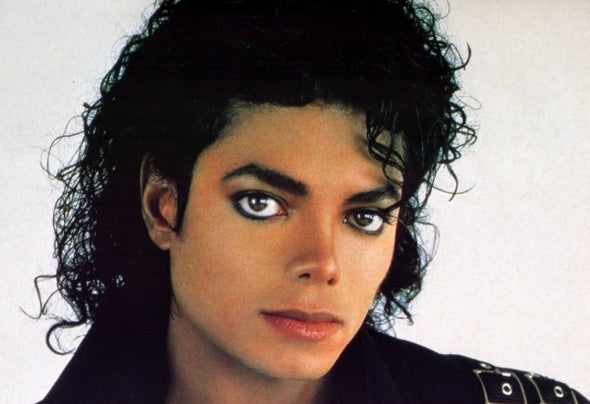
 Linear Mode
Linear Mode
